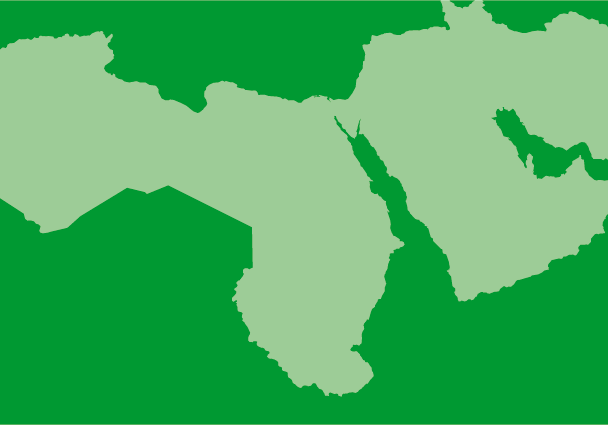
Jan 15, 2024 | News
With 2023 being the deadliest year on record for Palestinians in the West Bank, the International Commission of Jurists (ICJ) condemns the rampant violent attacks by Israeli settlers, almost all of which are backed or tolerated by the Israeli authorities.
“The Israeli authorities must take immediate action to bring a halt to these violent attacks, some of which have led to the forced displacement of Palestinians,” said Said Benarbia, ICJ MENA director. “Those who are responsible for the attacks must be brought to justice with criminal sanctions commensurate to the gravity of the offences.”
Such incidents have dramatically escalated since the renewal of hostilities on 7 October, when Hamas launched unlawful attacks against Israeli civilians, which led to an indiscriminate and disproportionate response by Israeli forces in Gaza. Between 7 October and 27 December 2023, settler attacks against Palestinians in the West Bank led to the killing of at least seven adults and one child. The perpetrators have thus far enjoyed near complete impunity for the apparently unlawful killing and injury of Palestinians, with only two settlers arrested in relation to the attacks and no indictments filed.
Under international humanitarian law and human rights law, Israel, as the occupying power, has an obligation to ensure the safety and protection of the population of the West Bank and the rest of the Occupied Palestinian Territory. Moreover, under human rights law, including under the International Covenant on Civil and Political Rights, Israel has an obligation to protect the population against human rights violations, including their rights to life and security of person, and to prevent such violations, in particular by addressing incitement to hostility or violence.
OHCHR reported that between 7 October and 27 December 2023, Israeli settlers perpetrated at least 367 violent attacks against Palestinians, which caused the displacement of 1208 members of West Bank herding communities, including 586 children. Overall, 2023 was the deadliest year for Palestinians in the West Bank with the number of settler attacks against Palestinian civilians rising to an average of seven per day. In Zanuta village alone, armed Israeli settlers, some in Israeli Army reservist uniforms, forced 150 Palestinians from their homes. The Israeli Defence Forces have generally failed to intervene to prevent and stop violent acts against Palestinians, allowing Israeli settlers to seemingly exploit international preoccupation with events in Gaza to escalate efforts to forcibly remove Palestinians from their homes in the West Bank.
International law prohibits the forced displacement of persons lawfully present in an area by coercion or expulsion, without grounds permitted under international law. In addition, under international law, State-backed or tolerated Israeli settlers’ violence against civilian residents of the Occupied West Bank may amount to “an intentional and severe deprivation of fundamental rights contrary to international law by reason of the identity of the targeted group or collectivity.” This conduct may amount to the crimes against humanity of “deportation or forcible transfer of population” and “persecution”, respectively, if committed knowingly as part of a widespread or systematic attack against the Palestinian population.
The ICJ urges the Israeli government to take immediate and effective measures to prevent and stop settlers from perpetrating further crimes against the residents of the West Bank, to protect the civilian population from unlawful attacks, investigate all instances of settler violence and, when evidence so warrants, to bring those purportedly responsible to justice.
The ICJ also calls for the Israeli government to cease actions liable to further enable settlers to commit additional acts of unlawful violence against Palestinians, including by halting the implementation of its policy to expand settlements, the enforcement of laws facilitating the expropriation of Palestinian property by settler organizations, the unregulated supply of arms to settler communities, and official statements that risk being interpreted as calls for the eradication of Palestinian communities.
Finally, the ICJ calls on the International Criminal Court to investigate these criminal acts as potential war crimes and crimes against humanity that fall under the Rome Statute, and, where warranted, initiate prosecutions of those responsible.
Background
Israel’s establishment of settlements in Palestinian territory occupied since 1967 constitutes a flagrant violation of international humanitarian law. UN experts have also denounced the ongoing forced eviction of Palestinian families in East Jerusalem through the promulgation of discriminatory law that “helps settler organizations expropriate Palestinian properties.” International humanitarian and human rights law prohibit the unlawful seizure of private property and pillaging on occupied territory.
In February 2023, the newly formed Israeli government signed a coalition agreement that seeks to formally extend and annex settlements in the occupied West Bank, and establishes civilian administration for Israeli settlers in illegal West Bank settlements. The ICJ considers the settlement policy outlined in the coalition agreement to be manifestly unlawful under international law, paving the way for the further unlawful entrenchment of discriminatory and acquisitive Israeli practices towards Palestinian communities, while also being liable to incite further settler violence. In this regard, the UN Special Committee to Investigate Israeli Practices noted “a direct correlation between the policies of the Israeli government, as articulated in its coalition agreement, and Israeli practices on the ground,” noting that “settler attacks have increased on average from two a day in 2022 to three a day in 2023.”
Contact
Said Benarbia, Director, ICJ Middle East and North Africa Programme, t: +41-22-979-3800; e: said.benarbia(a)icj.org
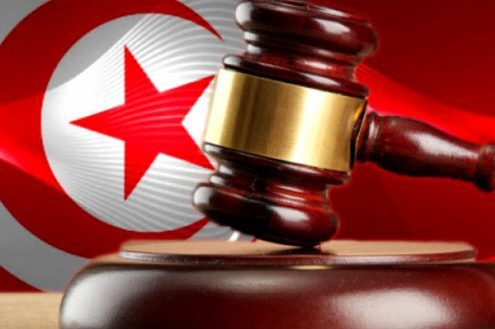
Jan 12, 2024 | News
The ICJ firmly condemns the criminal conviction and sentencing of journalist and columnist Zied Elheni to a six-month suspended sentence of imprisonment on 10 January 2024 on spurious charges — an act of clear retaliation for Zied Elheni’s legitimate exercise of his right to freedom of expression, including to criticize government members.
البيان باللغة العربية
“This guilty verdict is part and parcel of an escalation in attacks on journalists and another concrete illustration of the Tunisian authorities’ authoritarian drift and of their drive to restrict the legitimate exercise of the right to freedom of expression and to silence independent voices in the country,” said Said Benarbia, ICJ Middle East and North Africa programme director. “These attacks violate media freedom and the right of the public to freely access information and have a chilling effect on free speech,” he added.
On 28 December 2023, Zied Elheni was summoned to appear before the Fifth Central Cybercrime Brigade of the Aouina National Guard, a few hours after he had made a statement critical of the Minister of Commerce on Radio IFM. On the same day, the public prosecutor at the Tunis First Instance Tribunal decided to remand Elheni in custody on suspicion of offences under article 24 of Decree-Law 54; his detention was extended by 48 hours on 30 December.
On 1 January, the public prosecutor at the Tunis First Instance Tribunal charged Elheni with “harming or disturbing third parties through public telecommunications networks,” under article 86 of the Telecommunications Code, and remanded him in custody pending trial. On 10 January, Elheni was tried before the Criminal Chamber of the Tunis First Instance Tribunal and convicted of the charges.
In June 2023, Elheni was arrested and questioned by the Fifth Central Cybercrime Brigade of the Aouina National Guard in a distinct case, following a statement he had made on the radio in which he had criticized the authorities’ arbitrary reliance on the crime of offending the President of the Republic under article 67 of the Criminal Code. He was later released and there have been no further developments in this case.
The ICJ calls on the Tunisian authorities to quash Elheni’s conviction and sentence under article 86 of the Telecommunications Code and to drop all charges against all journalists currently being prosecuted solely for the legitimate exercise of their journalistic duties and the peaceful exercise of their right to freedom of expression, and to immediately cease all practices that impede the independent work of journalists.
Background
There has been a growing pattern of prosecutions against journalists since July 2021 in Tunisia. Monia Arfaoui and Mohamed Boughalleb were prosecuted in March and April 2023 based on Decree-Law 54, in relation to their work as investigative journalists. Noureddine Boutar, journalist and director of Mosaique FM, was also arrested and placed in pre-trial detention in February 2023 in relation to criminal proceedings based on “State security-related” charges aimed to crack down on government critics, before being released on bail in May 2023. The charges against him, however, are still pending.
Contact
Said Benarbia, Director, ICJ Middle East and North Africa Programme, t: +41-22-979-3800; e: said.benarbia(a)icj.org
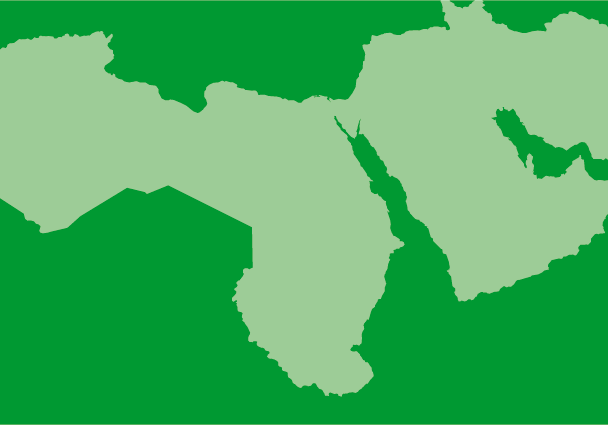
Dec 21, 2023 | News
On 18 December 2023, the International Commission of Jurists (ICJ) filed a submission to the Human Rights Committee (the Committee) on Tunisia’s implementation of the Committee’s 2020 concluding observations regarding the Constitutional Court and the use of counter-terrorism provisions in the context of the Committee’s follow-up procedure.
“Since July 2021, President Kais Said has systematically eroded all checks on his authority, including by curtailing the powers of the Constitutional Court under the 2022 Constitution and by instigating arbitrary prosecutions against those suspected of opposing his rule , including judges, journalists, human rights defenders, and political opponents,” said Said Benarbia, ICJ MENA director. “The Tunisian authorities must abide by their obligations under international law, immediately reinstate a democratic constitutional order, and end the use of the criminal process and counter-terrorism measures to crackdown on dissent and free speech.”
In April 2022, pursuant to the Committees’ request to the State party to provide follow-up information on the implementation of its recommendations regarding the Constitutional Court, the state of emergency and counter-terrorism, and freedom of peaceful assembly and excessive use of force by the State’s agents, Tunisia submitted further information regarding its obligations under the International Covenant on Civil and Political Rights (ICCPR) as they pertain to the above-mentioned concerns. During the Committee’s 140th session between 4 and 28 March 2024, this information, and Tunisia’s implementation of the Committee’s recommendations on the same, will be reviewed.
The ICJ’s submission to the Committee highlights a number of ongoing human rights concerns with respect to the country’s implementation of and compliance with the provisions of ICCPR, which are not adequately addressed in the State’s submission of further information, including:
- Article 2(3). By failing to establish a Constitutional Court, and by severely limiting the independence and powers of the Constitutional Court under the new Constitution – should one ever be established – Tunisia has failed to provide recourse to resolve disputes about the constitutionality of the exceptional decrees promulgated by the President under the state of exception, including by removing the power of the legislature to challenge the constitutionality of such decrees in the new Constitution;
.
- Article 4(1) and (3). By failing to specify the nature of the public emergency that purportedly necessitated the suspension of the Constitution in July 2021 per article 80 of the 2014 Constitution on state of exception, and the corollary interference with ICCPR rights, and by failing to notify the derogation to these rights, Tunisia has failed to meet its obligations to prove and ensure that the exceptional measures adopted by the President were “strictly required by the exigencies of the situation”;
.
- Article 9(1). By arbitrarily detaining perceived political opponents, lawyers or judges under counter-terrorism provisions without reliable evidence, Tunisia is unlawfully interfering with their right to liberty;
.
- Article 19 (1) and (3). By arbitrarily investigating and prosecuting members of the judiciary, political opponents and lawyers under counter-terrorism provisions, Tunisia is unlawfully interfering with their right to express their opinions both in their professional and personal capacity; and
.
- Article 14(1). Through interference in the appointment, career, disciplining and dismissal of judges, prosecutors and High Judicial Council members, the President has undermined the independence and impartiality of tribunals presiding over criminal investigations and prosecutions, including with respect to counter-terrorism proceedings against perceived political opponents and members of the judiciary.
Contact
Said Benarbia, Director, ICJ Middle East and North Africa Programme, t: +41-22-979-3800; e: said.benarbia(a)icj.org
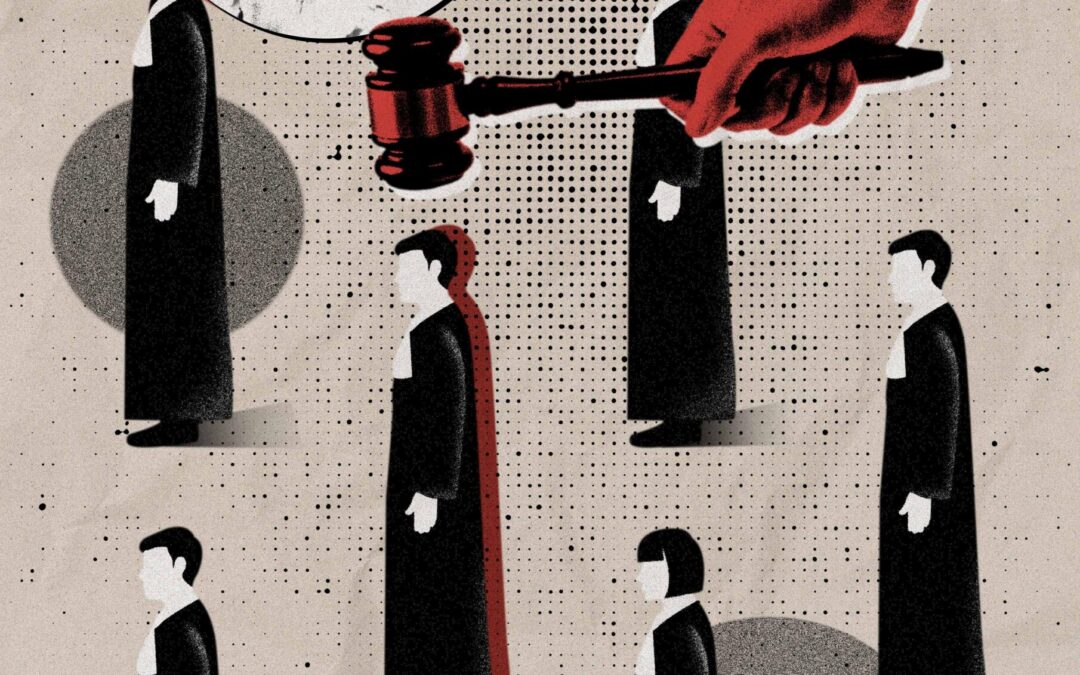
Dec 18, 2023 | Attacks on Justice, Publications
In a briefing paper published today, the ICJ called on the Tunisian authorities to immediately end their attacks on independent judges and prosecutors, drop any criminal charges against them, and reinstate all those arbitrarily dismissed.
التقرير بالغة العربية
On 1 June 2022, President Kais Saied granted himself, via decree, absolute power to fire judges and prosecutors summarily, and [on the same day] promptly dismissed 57 of them. The President had earlier pledged to “cleanse” the judiciary on spurious accusations of widespread political bias and corruption.
The ICJ analysis of the cases of 18 dismissed judges and prosecutors, as well of another judge subjected to disciplinary and criminal proceedings, establishes a pattern of arbitrary disciplinary and criminal processes effectively aimed at purging the judiciary of those who asserted their independence and challenged the dismantling of the institutional independence of the judiciary.
“The ongoing arbitrary criminal prosecutions against independent judges and prosecutors for the legitimate exercise of their professional functions or of their right to freedom of expression is an affront to the rule of law and judicial independence in Tunisia,” said Said Benarbia, ICJ MENA director. “The authorities must immediately end such prosecutions and reinstate all judges and prosecutors who have been dismissed without legitimate grounds or due process”
In the aftermath of his speech on 25 July 2021 announcing exceptional measures, the President promised to “cleanse” and “purify” the judiciary, which he accused of complicity with political parties in power before July 2021, as well as of inefficiency, corruption and political bias. He also targeted the High Judicial Council and its members, limiting certain of their financial benefits. Since then, the President has followed up on his rhetoric with successive decisions and measures aimed directly at dismantling the judiciary’s institutional independence.
The ICJ’s analysis examines the process of arbitrarily dismissing and prosecuting judges and prosecutors in Tunisia since the adoption of these measures in light of the country’s obligations under international human rights law.
The ICJ’s analysis is primarily based on: (i) a review of 20 criminal cases opened by the authorities against 18 dismissed magistrates and of the case of Anas Hmedi, the President of the Association of Tunisian Magistrates (AMT), which is directly linked to his support of the dismissed judges and proseuctors; (ii) 15 interviews with judges, prosecutors and their lawyers; (iii) an analysis of the First President of the Administrative Court’s decisions to suspend the dismissal of 49 magistrates and to dismiss the request for suspension of seven others; and (iv) an analysis of decisions and reports by the General Inspection Service, the High Judicial Council and the Temporary High Judicial Council.
The ICJ considers that the conduct of the dismissed judges and prosecutors, on the basis of which they have apparently been subject to criminal proceedings, did not amount to recognizably criminal offences under general principles of criminal law and international human rights law and standards.
On the contrary, the ICJ’s analysis of these cases establishes that these judges and prosecutors were arbitrarily dismissed and then subject to criminal proceedings in relation to serious offences solely for three types of conduct, none of which is a legitimate basis for criminal prosecution:
- for the exercise of their prosecutorial and judicial functions in compliance with the law and ethical standards, and
- for the exercise of human rights protected by international human rights law, including the rights to freedom of expression and freedom of association
- for private conduct, unrelated to their performance of their duties, which, in any event, was not criminal in nature.
Contact
Said Benarbia, Director, ICJ Middle East and North Africa Programme, t: +41-22-979-3800; e: said.benarbia(a)icj.org
Download:
Download ICJ briefing on Attacks on Judges and Prosecutors in Tunisia in English: Here
Download ICJ briefing on Attacks on Judges and Prosecutors in Tunisia in Arabic: Here
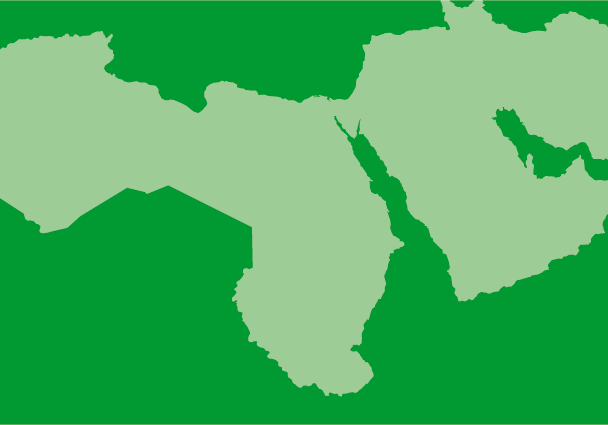
Dec 11, 2023 | Advocacy, News
On the occasion of the 16 Days of Activism against Gender-Based Violence, from 25 November to 10 December, the 25th anniversary of the Declaration on Human Rights Defenders on 9 December, and the 75th anniversary of the Universal Declaration of Human Rights, on 10 December, the International Commission of Jurists (ICJ) condemns gender-based violence against women human rights defenders (HRDs) in Libya and calls for an immediate end to such violence. In recent years, the authorities in the West and the East of Libya have consistently attacked prominent women HRDs and let non-State actors threaten, assault and kill them with impunity.
.هذا البيان الصحفي متوفر باللغة العربية أيضاً
The situation of women human rights defenders in Libya
In the years that have followed the 2011 uprising and the ouster of Muammar Gadhafi, women HRDs in Libya have been killed and subjected to enforced disappearances. For example, in June 2014 five armed men killed Salwa Bugaighis, a woman HRD and lawyer advocating for women’s human rights, in her home in Benghazi, eastern Libya. In July 2019, Siham Sergiwa, a woman HRD and member of the House of Representatives (HoR) – the 2014 elected legislative body based in the East of the country – was abducted and there is reasonable grounds to believe that she was subjected to an enforced disappearance by men believed to be affiliated with the Libyan National Army (LNA), a group of militias led by Khalifa Haftar, a top military officer under Gadhafi who was officially appointed Field Marshall of the LNA by the HoR in 2015. Her abduction occurred after she criticized the April 2019 offensive by the LNA on Tripoli and called for a ceasefire. Her fate and whereabouts remain unknown to this day. In November 2020, Hanan Al Barassi, a lawyer, political activist and woman HRD critical of the LNA, was shot dead by a group of armed men in Benghazi’s city centre, in broad daylight. No one has yet been held accountable for these violations or for the killing of other women HRDs, including Fariha El Berkawi and Intissar Al Hasairi, in 2014.
In April 2021, the Committee on the Elimination of All Forms of Discrimination against Women (CEDAW) issued its decision relating to the first communication against Libya under the Optional Protocol to the Convention on the Elimination of All Forms of Discrimination against Women. The case concerned Magdulein Abaida, a woman human rights defender who, in 2012, was abducted three times by members of the Martyrs of 17 February Brigade, a militia affiliated with the Ministry of Interior, beaten, called a “whore” and a “bitch”, and threatened with death. A man identified as a Ministry of Defence official questioned her. After her release, she received death threats online.
The CEDAW found that Libya had breached the Convention on the Elimination of All Forms of Discrimination against Women, finding that the gender-specific abuse inflicted on Magdulein Abaida had occurred with the consent or acquiescence of public officials and, therefore, amounted to torture. In addition, the Committed highlighted that Magdulein Abaida had been abducted during a women’s rights workshop, and that, immediately after being tortured, she had been interrogated about her women’s rights organization, and that the Deputy Interior Minister had criticized her organization’s “chanting for women’s freedom”.
The Committee recommended to the Libyan authorities to carry out a prompt, thorough and independent investigation into Magdulein Abaida’s discrimination, arrest, detention and torture and to provide her with appropriate reparation. It also made the following general recommendations: (1) to “adopt comprehensive anti-discrimination legislation”, (2) to “put in place measures to ensure a safe and favorable environment for women’s human rights defenders”, and (3) to “recognize publicly the specific place and role of women HRDs and their legitimacy in the public debate”. The Libyan authorities have not responded to or implemented CEDAW’s recommendations.
In its June 2022 report, the UN Independent Fact-Finding Mission on Libya (FFM) – which investigated violations and abuses of international human rights law and international humanitarian law since the beginning of 2016 until March 2023 – documented the case of an unnamed woman HRD who was summoned by the eastern Internal Security Agency (ISA) in 2020. The ISA interrogated her about the human rights organization she established, its activities, including on women’s rights, and funding. During her questioning, she was insulted, called “damaged”, beaten, was forced to remove her shirt, burnt with a metal rod and sexually harassed. In 2023, the UN Support Mission in Libya documented further intimidation and assaults against women HRDs.
In the same June 2022 report, the FFM also found that “tactics used to terrify and silence activists” included online threats of sexual violence, in particular against women HRDs. It noted that, in December 2021, Meta, Facebook’s parent company, said it removed pages “purporting to be run by female public figures to make inflammatory statements on their behalf”. The FFM considered that, in the polarized context of Libya, the publication of provocative political statement could “endanger the lives” of the impersonated woman HRDs, as they could become the target of further online and offline violence. In 2021, the NGO Lawyers for Justice in Libya found that online violence against women “is overwhelmingly directed against […] women human rights defenders […] with the aim of silencing their voices and, increasingly, spreading misinformation”.
The failure of the Libyan authorities to effectively investigate crimes of gender-based violence against women HRDs has occurred in a context in which complete impunity for human rights violations and abuses prevails. Such a climate, in turn, has enabled even further violence against women HRDs, and women and girls more generally, forcing them out of public life. According to a study referred to by the UN Special Rapporteur on violence against women and girls, its causes and consequences in her report following her official visit to Libya, 60 per cent of consulted women declared that they had been deterred from participating in the public sphere because of the attacks against women.
Ill-equipped legal framework
As noted by the UN Special Rapporteur on the situation of HRDs in her 2023 report on women HRDs in conflict, post-conflict and crisis-affected settings, to ensure that women HRDs can safely do their work, concrete measures need to be put in place to prevent attacks against them. However, the Libyan legal framework is ill-equipped to address gender-based violence against women and girls. The Benghazi and Tripoli specialized courts – which were established in 2020 to hear criminal cases arising from violence against women and children – have so far only been dealing with civil cases relating to family law, rather than trying crimes of gender-based violence committed against women.
The General National Congress, the first post-revolution legislative body, and its successor, the HoR, discussed in 2013 and 2016-2017 two draft laws on combating violence against women, but they were never adopted into law. In 2020, a committee of experts supported by the western Government of National Unity’s Minister for Women’s Affairs started preparing a third draft. The draft has recently been submitted for consideration to the HoR by 20 members of parliament.
Recommendations
Considering the plight of women HRDs, the ICJ calls on the Libyan authorities to:
- Adopt and implement the draft law on combatting violence against women, and amend the Libyan Penal Code, in accordance with international human rights law and standards with respect to violence against women;
- Protect women HRDs from harassment, intimidation and acts of violence, both online and offline;
- Investigate and prosecute the crimes, including online violence, committed against women and women HRDs, including with respect to the cases of Fariha El Berkawi, Hanan Al Barassi, Intissar Al Hasairi, Salwa Bugaighis and Siham Sergiwa, and hold perpetrators to account;
- Equip the specialized courts on violence against women and children with resources and funding to ensure the fulfillment of their mandate to prosecute criminal offences of gender-based violence committed against women and children;
- Protect and promote the human rights of women and women HRDs, and promote as legitimate and encourage their participation in political and public life, including elections; and
- Publicly condemn any acts of gender-based violence against women HRDs.
Contact
Said Benarbia, Director, ICJ Middle East and North Africa Programme, said.benarbia(a)icj.org
Katherine Iliopoulos, Legal Adviser, ICJ Middle East and North Africa Programme, katherine.iliopoulos@icj.org
Mohamed Hanafy, Legal Researcher, ICJ Middle East and North Africa Programme; mh(a)icj.org
Juliette Rémond Tiedrez, Legal Researcher, ICJ Middle East and North Africa Programme, juliette.remond-tiedrez(a)icj.org









